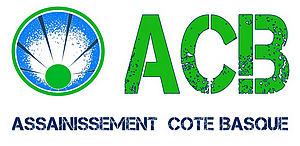Content
These two approaches are far different from what I teach here on the podcast and what I teach my clients because neither one of these addresses your desire. The population of people who use MM is pretty well educated and is made up for the most part of problem drinkers rather than those meeting full-blown alcohol dependence criteria. The idea is to teach problem drinkers more responsible drinking habits so that they don’t devolve their habits into all-out alcoholism. And now there is even a treatment center focused on moderation as a treatment goal. Addiction is a major problem in the world today. The most common type of addiction is drug and substance addiction. However, other types of addiction prevalent include gambling, sex, work, food, and co-dependency.
Individuals who received moderation training substantially reduced their alcohol consumption on average by 50-70% and, as a result, significantly reduced health and social problems related to their drinking. And an opportunity to gain a more realistic perspective on the way they use alcohol and how it is getting in the way of achieving their personal goals and aspirations. Our approach is distinctly client-centered, not program-centered.
Mental Health
Take the first step toward addiction treatment by contacting us today. Motivation & confidence are important psychological variables in treatment for alcohol use disorder, with confidence appearing to be especially key. It is also worth mentioning some baseline (i.e., pre-treatment) differences between the three groups to get a sense of the types of individuals in each group. This study by Kuerbis and colleagues investigated how individuals with different clinical profiles will respond to moderation-focused alcohol interventions.
- These peripheral things in themselves aren’t too tempting.
- The most common type of addiction is drug and substance addiction.
- Because what you try to do with moderation is you try to follow a rule rather than listening to your body’s response in the present moment.
- Both of them set you up for a lifetime of struggle.
- Are you someone who likes to ease into things, or do you prefer an all-or-nothing approach to change?
Maybe I should remind myself how bad milk is for me.” I’m not doing any of that because I just don’t have any desire for it so it’s just so clean and simple. You can say no to a drink and still really, really, really want to drink. I know that that’s true because I spent many years in my life being in that exact same situation.
MeSH terms
According to the vast majority of addiction studies, of the various factors leading to substance abuse, stress and trauma are right up there. And just as we each had a different drug of choice, we each took a different path out. A young man in the group explained that he had bipolar disorder, that he was feeling great on his new medication, but that there might be a problem when it comes to alcohol. “I’m not abstinence vs moderation someone who drinks when they’re depressed, I drink when I’m up,” he said. “If I’m feeling good, I want to be out being social, and that means drinking.” The group offered some tips and tricks for sticking to the four-drink-a-night maximum, and for finding ways to be social without drinking. Another woman nearly started to cry when talking about issues with her son, her marriage, and her stressful job.
What is an abstinence syndrome?
: the physical effects that result from depriving an addict of the drug to which he or she is habituated.
It’s something that you have to be committed to learning. And you know what, you should want to be in charge of yourself. And I just want to say this; I think for a lot of people, that level of empowerment is scary. To say you’re https://ecosoberhouse.com/ in charge, you are your own best authority. Because people don’t teach us how to do this, how to be in charge of ourselves, how to be our own best authority. Now, I’m not saying that you can’t decide what’s right for you.
Does Drinking in Moderation Help or Hurt the Long-Term Health of Your Brain?
And when you see that, all of a sudden, you have your path forward for how you can start to change those thoughts. But once I started to bring it to the surface, that’s when I really started to understand, oh okay, so this is what’s really creating my desire. Everything that I’m thinking about the drink and what it means to drink and what it means not to drink and how I believe I’m going to feel and how I will feel when I say no and what’s happening in my body once I start. Yes, alcohol, when you consume it, creates a dopamine response in your brain. We’re not taught that we can separate out the dopamine response that is happening from the desire that we are feeling.
We’re talking about abstinence versus moderation today because I get asked this question all the time. And if you have struggled with your drinking, you too have probably spent a lot of time thinking about which one you need to choose. Why I think that both these options of abstinence or moderation set you up for a lifetime of struggle. While your relationship with alcohol is entirely personal, reflecting on outside influences can be helpful when considering the relative benefits of sobriety or moderation. These influences may include family dynamics, workplace culture, friendships, strained relationships, and lifestyle elements. While it is legal for adults, it can still be dangerous, and many people do become dependent on this substance. Programs like our alcohol use treatment in Ohio that help people quit drinking altogether can be helpful, but there are plenty of different theories on the subject.
Similarities between Abstinence and Moderation
Your whole body may convulse saying, “I’ll do anything, just don’t ask me or tell me that I have to stop forever.” This is normal. If this is how you feel, commit yourself to being open to new ideals and beliefs that may result in a healthier and more fulfilling lifestyle. Among the 1% of Americans (2.8 million) who receive treatment for an alcohol use disorder each year, there are probably very few people with early-stage alcoholism. Realize Recovery works with all clients regardless of which approach they prefer and can help you or your loved one sift through the pros and cons of each approach based on their unique experiences.
Combined with a consistent and aggressive disputing of urges to use, most find their messages to use either decrease to nothing or become infrequent and easily handled. It may not be easy to see now, but your life can be restored to where you are in control, your addiction and the urges will recede to an unpleasant memory. You don’t have to live in a constant battle with these painful, nagging urges.
When you make things complicated, you open the way to abuse. You don’t have to change the molecular makeup of alcohol. You don’t have to move to a cabin in the woods where alcohol is not around you and no one is drinking around you.
- Are recovering from an alcohol use disorder or are unable to control the amount they drink.
- These answers will vary from individual to individual, and your choice of moderation vs. abstinence is a personal one.
- The person who binged on the weekends but now drinks moderately may eventually get accustomed to that change and have a decreased urge to over-drink.
- It’s also kept him from getting help for other issues.
- Any amount of alcohol consumption is a risk factor for relapse.
- You may have heard some version of St. Augustine’s observation that “To many, total abstinence is easier than perfect moderation.” 12-step programs emphasize total abstinence from drugs and alcohol.
When you are ready, say to yourself, “I am not going to use again! ” Reinforce that commitment in any way possible and rational. One of the best ways is to remember why you are making the commitment.

